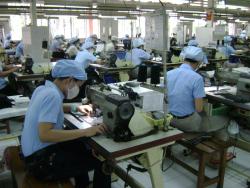Amid the increasing number of negative connotations about State-Owned Enterprises (SOEs), a new wave of trade agreements are being established between Vietnam and a specific group of trading partners. This is in response to certain criticisms to SOEs as being favored above private sectors; bad management; lower profits than their counterparts; ability, or otherwise, to survive; and its decreased competitiveness or even efforts to restore such.
In contrast, free trade agreements will produce a level ground for all private businesses, which means that all sectors, both public and private, will and are in fact required, to equally work hard to succeed and not simply depend on favors and/ or other special privileges. Trans-Pacific Agreement (TPP), an American-run agency; and the European Union-led Free Trade Agreement (FTA) are some of the free trade agreements which are hoped to be approved at the end of this year.
______________________________________________________________________________________
While SOEs create an ideal picture of equality and competitiveness, the reality is a completely different image. That is, SOEs enjoy certain advantages such as preferred access to loans, tax breaks, and public procurement contracts, just to name a few. They are exempted from normal market regulations. Moreover, the big percentage of share it enjoys over such services as investments, assets and loans do not coincide with its supposed output, creating a noticeable discrepancy in such areas as production and creating jobs. This leaves an unfair competition for private enterprises, both local and international. Free trade will eliminate this unfair edge and finally push state sectors to reform and compete equally in the market. The new agreement will also punish violators of the free trade market.
While SOEs are already playing an unfair advantage over the private sectors, its restructuring efforts are even lagging behind, if not totally inefficient. The garment sector is a clear example of this, and the government is blaming capital shortage for the unproductivity. As a solution, the state is planning to lower import taxes in countries like the United States, Canada, Australia and Japan from 17%-32%, if possible even up to 0%. A “yarn-forward rule” condition applies though stipulating that each piece of string, button and zipper in a garment will have to come from Vietnam’s yarn and components are sourced from China and South Korea. The latter two are non-members of the TPP which makes Vietnam’s products inapplicable for the exemptions. Such a strategy is seen as necessary by the Vietnamese government else the garment sector will suffer a big loss especially since it depends on outsourcing contracts in exporting its products. It depends heavily on bulk and cheap prices rather than quality and does not have the capacity to produce its own yarn and textile facilities.
Once the free trade agreement is signed, SOEs are expected to declare bankruptcy, which only shows once again its incompetitive advantage over the private enterprises. The TPP and FTA is expected to create an even bigger pressure on the government than during the World Trade Organization because the following agreements will require Vietnam to follow the Agreement on Government Procurement. This entails for the state to implement the following: reform its market mechanisms; improve SOE competitiveness; accelerate economic restructuring; SOE reform; and transparency in operation.
____________________________________________________________________________________
But as in any plan, public or private, it will take a long time before total and efficient market restructuring can be accomplished. At present, Vietnam has a lot of work to do to achieve this, like privatizing over 400 state-owned companies and constructing long-term plans, among others. The last three years have only seen seeking approval from local authorities for their restructuring plans, and even little has been done to implement such. It will take a large amount of funding but perhaps most of all, a strong will power on the part of the Vietnamese government to sincerely reform its system and compete fairly in the free market.
